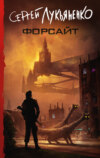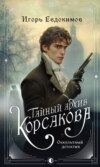Читать книгу: «Sweet Mace: A Sussex Legend of the Iron Times», страница 27
How Mistress Anne watched and feared
Early morning, as bright and glowing autumn time as ever shone over the weald of Sussex. The harvest was gathered in; the trees were heavy beneath the red and golden crop of apples, and in hedgerow and plantation the brown and cream-husked nuts peered out in clusters from the leafy stubs.
There was a suspicion here and there of the coming fall, but only in bright touches of beauty – golds, and russets, and reds – bloody crimson, and orange scarlet, where the sun-kissed leaves yet burned beneath the caresses of the ardent god. The sky above was of the richest, purest blue, and the eye rested on naught but beauty, so long as it kept to nature, and not to art, for winding along the narrow lane towards Roehurst was a procession of armed men, preceding and following a rough country tumbril, drawn by a clumsy horse. The load was apparently a heap of shabby garments, dropped in one corner of the cart.
But the crowd that pressed upon the armed men, striving to get a glimpse of the interior of the vehicle, could see that the bundle of clothes in the cart moved slightly from time to time, lifting a thin white hand and letting it fall heavily once more; and as they buzzed, and talked, and shouted to one another, they made out further that there was a grey head raised from the heap, and a white, scared face looked round partly in wonder, partly seeking for pity, as its owner seemed to realise her position, and then crouched lower and lower as she heard shouts and voices crying out the words, “Mother Goodhugh! Witch! The stake, the stake!”
The escort took the pressure of the eager little crowd very good-humouredly, but had to keep waving the sight-seers back, or some would have been trampled beneath the horse’s feet, and as it was the procession was greatly delayed.
“I don’t believe they’ll burn her after all,” said one rough specimen of a peasant to another.
“Nay, they will. Stake be all ready, and faggots enough to burn a dozen such witches as old Mother there.”
“I’ll believe it when I see it, lad. See if she don’t go off in a flash, or else make the rain come so as the faggots won’t burn. Nay, lad, she won’t be done for yet. Look there. Did’st see her wicked old eyes glowering round when she raised her head? Don’t let her look at thee, or she’ll put a curse in thy face.”
“Ay, but she be a wicked looking one, and it will be a glad riddance for Roehurst when she be gone, for she did naught but curse.”
“Mas’ Cobbe ought to be glad to see her burnt, for she’s cursed him oft enough, poor soul.”
“But why don’t they make haste? I want to see the burning, and then get back to the wedding games.”
“Oh, they won’t wed till Mother Goodhugh’s all in ash, lad. See, there be the bridegroom. He be going to see it done.”
“But what be they stopping for?”
“Don’t know,” said the other, climbing up the bank and holding on by the branch of a tree. “Why, it be parson come, and he be getting into the cart with Mother Goodhugh. Say, look there! He be gone down on his knees aside her, and takes her hand. Look out, parson, as she don’t fly at thee like a cat.”
But there was no cat-like spring in Mother Goodhugh, for torture and starvation had reduced her so that the little life left in her was likely to flutter away before the torch was placed to the faggots. As Master Peasegood laboriously clambered into the cart and knelt beside her, he took one of the poor wretch’s wasted hands in his, and she raised her head to look up at him half-wonderingly, before letting it fall once more, and remaining apparently nerveless and flaccid, waiting for the end.
The procession passed within fifty yards of the Moat gate, where Anne Beckley was waiting – not to cry out in reviling tones against the wretched woman, but to see her pass, hidden awhile amidst the dense evergreens, and trembling lest she should be seen.
Anne Beckley’s heart beat fast as the procession came nearer and nearer, and she crouched down trembling as she fancied that Mother Goodhugh must see her; while the cold dew stood upon her brow as she waited for the curses the old woman would fling upon her head.
But there was no curse hurled at her; there was the trampling of feet, and the buzz of many voices, beating hoofs, and grinding wheels coming nearer and nearer, till all appeared to stay close by, and Anne’s heart seemed to stop its pulse as well.
She had come to see her enemy, and would gladly have witnessed the execution, only that she dared not express a wish so to do; and even now, so great was her trepidation, that in place of gazing at the broken, half-dead object in the cart, she shrank down lower and lower till the leaves completely sheltered her head.
What were they stopping for? Were they going to bring Mother Goodhugh there?
No: there had been no stoppage at all; it was only her fancy. They were going slowly on, and that was Master Peasegood’s voice praying beside the wretched creature so near her end.
The buzzing and trampling seemed to grow louder and the grating of the wheels more defined, till it seemed to Anne as if they would never pass away; but they grew fainter at last, and after some ten minutes of agony she hurried out of the clump of shrubs, and hastened to her room, too faint and heartsick to think of dressing for the ceremony to come.
Sir Mark and his men would be at the execution she knew, and when he returned it would be a signal to her that her enemy was no more, and she told herself that she would be able to go to the little church with a lighter heart.
In imagination she followed the procession to the narrow lane, and up to the front of Mother Goodhugh’s cottage, where the great stake had been placed. She saw the wretched woman bound there, the faggots fired, and seemed to hear her shrieks as she waved her hands and wildly cursed those around. Now she strained at the chain, and strove to tear it away as it grew red hot and burned into her thin white flesh, while the flames rose higher and higher, the faggots crackled, and she even fancied that she could hear the shouting of the people.
How the smoke curled up, half suffocating her at times, and making her hang her head as if dead! Then it was swept away, and the flames rose higher, half hiding the hideously contorted face with a ruddy lurid veil. The flames fluttered and danced, and seemed to Anne as if rejoicing at their task of purifying the earth from the presence of a witch. Then the smoke rose higher, till it formed a heavy canopy above the stake, while the flames played wildly on its lower surface.
Again the flames opened to reveal the figure of Mother Goodhugh. She had ceased to curse now, and with blackened, outstretched hands was appealing to her executioners to set her free.
As she did so Anne started forward with a wild cry.
“It is too horrible – too horrible!” she shrieked. “Father, father, save her before it is too late!” and then, overpowered by the imaginary scene she had conjured up, she tottered a step or two, and sank fainting upon the floor.
How the Witch-Faggots were fired
The scene at the execution was different from that which Anne Beckley painted in her mind. The cart, with its helpless burden, went slowly on, bumping up and down through the ruts of the narrow lane, and the armed escort patiently bore the pressure of the increasing crowd. For every hamlet for ten or fifteen miles round had sent its occupants to see the double show, and every bank and hillock had its gazing faces; while, as the procession drew near to the stake, with its terrible adjuncts, the cart had some difficulty in getting through.
The crowd gave way, however, to the escort, who pushed them back till a circle was made about the stake, in the midst of which stood Sir Thomas, Sir Mark, and the armed men.
As the cart stopped, Master Peasegood descended, wiping his bare wet forehead, and stood gazing with pallid face as four of the men pressed forward and roughly lifted the condemned woman to the earth.
“Be gentle, men, be gentle,” he cried, in tones of remonstrance. “It is a woman with whom ye have to deal.”
“A witch – a foul witch – thou mean’st,” said one of the men; and there was a yell of execration from the crowd.
“Silence!” roared Master Peasegood, furiously. “Are ye brute beasts, or men, women, and children? Ah, Master Cobbe, are you there?” he cried. “Can nothing be done to save this poor creature here?”
“Yes,” said the founder, sternly. “I protest against this terrible outrage in our midst, and I call upon you, good people, to help me to stop it.”
There was a murmur in the crowd that gathered round; but it was the murmur of a hungry beast fearful of being robbed of its prey, and not a hand was raised to help the speaker.
“Master Cobbe,” cried Sir Mark, sternly, “if thou art not mad, hold thy peace, and let the King’s commands be done.”
“Water, water,” gasped the wretched woman, looking appealingly round.
“Nay, Jezebel, thou shalt have fire,” said Sir Thomas. “It is more purifying than water for such as thou.”
There was a burst of laughter at the coarse jest, but Master Peasegood strode into the cottage, took a rough earthenware vessel, and, parting the crowd, filled the mug from the clear cold spring, and held it to the wretched woman’s lips.
She drank with avidity, and then pressed her thin white lips to the hand that held the vessel, while her eyes gave a grateful look at the face.
“Bless you,” she said, in a hoarse whisper, and her lips kept moving quickly.
“Quick,” cried Sir Mark; “we are wasting time,” and four of the men seized and carried the trembling creature to the stake, where a chain was hanging ready to bind her fast.
But as it happened there was the chain but no means of fastening it, and impatiently throwing it aside they bound her with a cart-rope so that she was upright, for her limbs refused their task, and she had to be held as the rope was twisted round.
“Mas’ Cobbe, Mas’ Cobbe!” cried Mother Goodhugh, in a hoarse wail.
“Nay, go not nigh to her, Master Cobbe,” cried Sir Thomas. “She will only curse thee again.”
For answer the founder, who could not tear himself from the spot, strode towards the stake.
“I cannot save thee, Mother Goodhugh,” he said, hoarsely.
“Nay, but thou did’st try,” said the poor creature, piteously. “Try and forgive me, Mas’ Cobbe, for I be a wicked wretch. I have cursed thee, and the curse has fallen back on me. Mace, thy child, be – ”
“Stand aside, Master Cobbe,” cried Sir Mark, imperiously. “Now, knaves, do your work quickly. Round with the faggots. Pile them higher, man, the brushwood first and the charcoal last. Quick, we are wasting time.”
The founder and Master Peasegood were thrust aside, and a part of the crowd pushed forward to help to build up from a stack at hand the brushwood and faggots round the wretched woman, who hung forward with drooping head, apparently insensible now from weakness and dread; and at last all was ready.
A deep silence fell upon all. The morning sun shone more brightly than ever on the gay autumn woodlands, and the eager crowd that, open-mouthed and staring, awaited the fiery trial.
“Will she screech?” whispered one matron, who had brought a child in arms to see the show, and who kept handing her little one clusters of the great blackberries that grew so plentifully upon the banks, “because if she do I shouldn’t like to stay and hear her cry aloud.”
“Nay,” said another, “she’ll not squeal much; she’ll take something to keep away the pains.”
“Think she will?”
“Ay, that she will. She be an anointed witch. See how she lives. You never go to her place but there be meal in plenty, and sugar and bacon too. Where do it come from, eh?”
“Nay, I d’now.”
“She makes it all with spells, and calls up plenty for what she wants. Eh, but she be a clever one. I’ve met her o’ nights in the forest, going crouching along; and one night John Piper see her with a white sperrit, going along together hand in hand.”
“Eh, did he? What did he say?”
“He never said a word; he dare not; but went down flat upon his face, and laid there till she’d gone.”
“I’d ha’ spoke to her if it had been me.”
“Nay, thou wouldn’t. It be too dreadful. Maybe she’d ha’ put a spell upon thee, and cursed thee like, and then thou’d ha’ pined away like Susan Harron. You marn’t speak to a witch when she be out o’ nights.”
“But dost think she do conjure up meal, and sugar, and bacon?”
“Why, could she get ’em if she didn’t?”
“I don’t believe about the white ghost.”
“Eh, but it be true enough,” said another. “Why, I used to see the old witch go o’ nights to dig about the Pool-house, and Mas’ Tom Croftly said, when I telled him, that it was to get burned bones to make spells with. I see her night after night, when the stones was smoking still.”
“Eh, she be witch enough,” said another. “See how she said that the Pool-house would be blown up some day, and never be builded again. I think she goes with one o’ they owls, as flits about o’ nights.”
“Shouldn’t wonder,” said the woman with i the child; “and, if she do screech, see if it bean’t just like they call.”
“She’ll fly out o’ the fire like one o’ they, see if she don’t, and her wings won’t even be singed. I wonder whether she’ll come back again, and live about here like an owl. If she do I shan’t stay i’ this neighb’rood to please nobody, so there.”
“Nay, she won’t fly away,” said one who had not yet spoken. “She’ll go down into the earth like, and underneath or into the rocks. Frank Goodsell told me he saw her go right into a solid piece o’ rockstone one night as he crossed the forest – she was there one moment, and the next moment she was gone – and became so frighted that he ran away.”
“But he ought to ha’ searched the place.”
“So he did next day, for he was ’shamed o’ being scared by an old woman.”
“Yes; and what did he see?”
“Solid stones, and not a hole big enough for a mouse to get into and hide. She just touched the rock with her stick, and it opened and she went in, and it shut up after her. That be a real witch, that be.”
“It be a terrifying thing to think of,” said another. “Only think of going into the earth and stopping for days, like a corpse.”
“Nay, but she didn’t do that?”
“Eh, but she did, for Frank Goodsell went every day to her cottage to see if she was there, pretending he wanted a charm for a pain in his wife’s leg; and he had to go ten days before he found her back, and then she was as quiet and smiling as could be, only she looked white and very terrifying to see.”
“Ah, lots of us wondered how she used to live. She’ll be back there soon; you see, they’ll never get her to burn; and, if they do, she’ll harnt the place, and make it bad for everybody. I’m not going to throw a stone at her, poor soul.”
“Poor soul, indeed, why she beant got one. She sold it to old what’s-his-name long ago.”
“Eh, but it be very horrid, said the woman with the child; and I half wish I had not come to see her burned to death.”
“She won’t burn.”
“Nay,” said another, “it be very terrifying; but she’ll be dead ’fore they burn her, if they don’t be smart. Think of it, though: Mother Goodhugh going to be burned for a witch.”
“I don’t quite like the old woman to be burnt. How wist she looks!” said the young mother, as she stared at the preparations.
“Hold thy tongue, do,” said another; “the country be better without her.”
“Ay, it was time something was done now the holy father’s gone, and Parson Peasegood won’t do naught to exorcise the witch.”
“You went to him, didn’t a?”
“Ay, I went to him and told him o’ Mother Goodhugh’s doings, and how she put a spell on our cow, and evil-wished neighbour Lewin’s boy.”
“What did he say?”
“Laughed at me and puffed smoke in my face. ‘Go to,’ says he, ‘for a fool. Thou must get some one to sew some more buttons on thee. Mother Goodhugh be no witch.’”
“Did he say that?”
“Ay, that he did, and when Betsy Goodsell saw the white sperrit o’ Sweet Mace, in the wood near the high rocks and went and asked parson to lay it, he got in such a rage that Betsy had to go.”
“She should ha’ took him an offering and then he would.”
“She did. She took him a two-pound lump o’ the fresh butter from her cow after putting a lump o’ salt i’ the churn to keep out the witch, and told him what she wanted done, and he ups with the butter and throws it at her, and it stuck on the door-post till Mistress Hilberry come and took it off; and when she heard what was wanted she said Parson ought to do it, and then he called her a silly fool.”
“What did she want Parson to do?”
“To do, why, to lay the spirit that kept walking uneasily night after night. Ay, and it keeps walking now, as a dozen Roehurst folk could tell, only they won’t speak about it for fear of doing themselves ill.”
“What did Betsy want him to do?”
“Why, just go and cut a piece o’ turf off her grave about a hand-breadth long and a hand-breadth wide, and lay it on the holy table in the church, and after that be done the spirit rests and doesn’t trouble people any more.”
“He might ha’ done that,” said the young mother. “I should say it would be wise to get a bit off Mother Goodhugh’s grave by-and-by to keep her from walking.”
“Eh, but you’ll never find grass grow upon her grave, lass. It will always be black and scathed like.”
“Nay, they’ll never bury her in no grave. She’ll be scattered in dust and ashes to the four winds o’ heaven.”
“Or the other place,” said one of the women, sententiously, and then they all watched the preparations.
“Hush! Look!” cried the young mother in an excited whisper; and a strange murmur ran through the crowd as, at a sign from Sir Thomas, whose florid face was blanched, and blotched with livid patches, a man ran into the cottage with a rough torch.
Master Peasegood saw that the end had come, and, pressing against the pile of faggots which reached up round the victim’s neck, he reached over one hand and touched her cheek.
“Courage, poor soul!” he cried earnestly. “Pray with me for mercy in that other land.”
The wretched woman seemed to be brought back by the parson’s voice, and she stared at him in a curiously dazed manner, her lips moving at last in a whisper that could not be heard.
“Pray with me, my poor soul – let us pray,” cried Master Peasegood eagerly.
“No,” she said sharply. “It be too late. I want to do some good before I die.”
“And it is too late for that,” said Master Peasegood to himself, as the excited murmur of the crowd went on.
“No, not to do – to say something, Master – and – and it seems all gone. Yes; I know,” she cried, striving hard to hold up her head, which fell back again heavily upon her chest. “No, I can’t remember. Yes, Mace, come here, child. I’ll give thee to thy father now.”
“Poor soul, she wanders,” muttered Master Peasegood. Then aloud: – “Try to pray with me, mother. Try – one word.”
“Yes, I was not a witch, master. It was only – Where be Jeremiah Cobbe? Here, let me tell him – quick.”
“He cannot reach thee now, poor soul. Pray with me quickly. Oh, Father have – ”
“Mace. Here – quick, child, come. Poor sweet – I had to fight hard to hate thee. My head – my head.”
Master Peasegood stretched out a hand to try and sustain the palsied head.
“Stand back, sir,” cried Sir Mark fiercely; and he laid his hand upon Master Peasegood’s arm, but the stout cleric shook him off.
“Back yourself, sir,” he cried, “an’ you would not singe your gaudy plumes. My place is here.”
Sir Mark stood back, for at that moment the smoking, flaming torch was thrust into the brushwood, which began to crackle and burn furiously, while a pillar of smoke rose high in the still autumn air, in company with a shriek from the women, some of whom turned away, while others covered their faces with their hands.
The torch was thrust into the faggots again and again, four times in all, and at each thrust there was a burst of flame and a cloud of smoke; but Master Peasegood stirred not, though the flames licked his long black garb.
The torch-bearer then rose up, and was in the act of thrusting his light right in the centre of the pile, when a strong hand seized it, wrenched it from his hand, and hurled it, as the man staggered back, full in the face of Sir Mark.
A loud chirping whistle rang out at the same moment, and a score of the rough country fellows in long gaberdines, who had been so busy in helping, now took advantage of their forward position to seize the burning faggots and hurl them furiously at the armed men.
Almost before the crowd could realise what was taking place, the flaming brushwood was scattered far and wide, and amidst the smoke a tall, bronzed fellow was seen cutting Mother Goodhugh free.
“Take her, Wat; she’s as light as any child,” he cried, in a clear voice. “Lead on, we’ll cover you.”
“Down with them!” shouted Sir Mark, as he recovered from his astonishment; and, drawing his sword, he made a rush at the disturbers of the judicial tragedy.
His first attempt, though, was unfortunate, for he fell over the prostrate body of Master Peasegood, who had been overset in the struggle; and his men hung back as they saw the rough-looking countrymen whip out the weapons they had concealed beneath their gaberdines, and form a bold front.
There was ample room, for the crowd fled shrieking as the bright steel flashed before their eyes. They had gazed in a stupefied, puzzled manner at the disturbance of the faggot pile, and wondered whether it was part of the show or the result of witchcraft; but the bold rescue of the wretched woman they could understand, and they hastened to find safety in flight.
Sir Mark was not long in recovering himself, and, calling to the armed men to follow, he pursued the retiring party, which retreated steadily along the narrow track, which, after it had passed Mother Goodhugh’s, gradually assumed the nature of a forest footpath, and grew more rugged at every step.
Attempts were made to outflank the party, but the density of the forest rendered that impossible, and those who left the path lost ground, while Sir Mark found himself kept at bay by the rear-guard of the retreating men.
“These are no countrymen,” he muttered to himself, as he saw how steadily they kept up the retreat; and he was in the act of cheering on his little force to make a rush where the pathway opened a little, when cries from behind warned him that he was attacked in the rear.
He bit his lip angrily as he found how cleverly his men were trapped, for it was evident enough that a portion of those he pursued had turned off to right or left, allowing him and his men to pass, and then closing up to attack, this rear movement being the signal for those in front to turn and make a desperate charge upon him and his London men.
It was so sharp a surprise that, at the end of five minutes’ cutting and thrusting, Sir Mark was down, faint and sick from a slash across the cheek, and his men had thrown up their weapons and fled helter-skelter through the forest, leaving the rescuers of Mother Goodhugh to proceed in peace.
“Single file, my lads, and away!” cried a well-known voice. “One of you relieve Wat Kilby, and change and change as you grow fagged. Wat, go round by the lower stream. I’ll come last and hide the trail.”
It required little hiding, for the men passed on and disturbed the herbage but slightly, while, after turning off to right and left in various narrow half-hidden tracks, their course could not have been discovered by the keenest eye, especially as one cut was made right across the forest.
Not a word was spoken, and the roughly-clad, brown-faced men went steadily on. Their load was changed from time to time, and after a while a stoppage was made by a stream, where Mother Goodhugh’s face was bathed, and the leader, whom it would have puzzled his best friends to have taken for Gilbert Carr, knelt beside her, and poured a few drops of spirits between her lips.
“Think she’s burned, captain?” said a rough voice that could be none other than that of Wat Kilby.
“No,” was the reply, “but I fear we were too late. She will hardly live to our journey’s end. Forward, my lads, forward! Did anyone see aught of Master Cobbe?”
“I saw him turn away and go behind the cart,” said one of the men. “He was not in the fight.”
“And Master Peasegood?”
“I helped him up, captain, and he staggered to the bank, and sat down on a half-burned faggot.”
“Then they are all right,” said the captain, musingly. “Wat, we shall have to be off to sea again at once. This affair will make the country too hot to hold us.”
“Why did you do it then?” growled the old man, gruffly, as he limped along, his scarred face shining in the sun. “She was no good, and will only curse us for our pains.”
“Well, Wat,” said the captain, sadly, “and if she does, we can bear another curse or too.”
“Ay, or a hundred,” was the reply.
It was a hot walk, through the still woods and over streams and ravine-scored hills. The men, as they grew heated, stripped off their rough country Saxon gaberdines, and appeared as light, active seamen of the time, one and all taking turns in carrying Mother Goodhugh, for whom a rough kind of hurdle had been hastily twisted together, and upon it she was laid.
At last the little party was ascending one rugged side of the valley where Anne Beckley had been left to wait the coming of her lover; and after a weary climb the men all had a rest, seating themselves by the spring that gushed from the rocks where the ferns and mosses hung, and after tempering the clear fluid with spirit they began to smoke.
“Let her rest for a time,” said Gil; “there is no danger here. Poor soul! A narrow escape from death.” As he spoke he covered the wretched creature with a cloak, and placed a doubled gaberdine beneath hothead.
He again trickled a few drops of spirits between the cracked white lips; and, after watching its effects, he rose from his knees, leaving Wat Kilby to fill his little pipe.
“Not much of a job after a twelvemonths’ cruise,” muttered Wat, as he limped uneasily up and down, “but better than leaving the poor old lass to burn. She’s too old and ugly, or she might have done; for I want a wife. Bah! No. She wouldn’t do. She’s not the witch I want. Eh! captain, did you call?”
“Yes,” was the reply; and, on rising, the old lieutenant scrambled up to where Gil, who looked bronzed and ten years older, stood pointing to the stones at the mouth of the store.
“Not been touched, eh, skipper?” said the old fellow.
“No; not by anything more than a rabbit,” said Gil, in a grave, quiet voice. “Get up the bars when the lads are rested. We shall have to stay here for the night.”

























